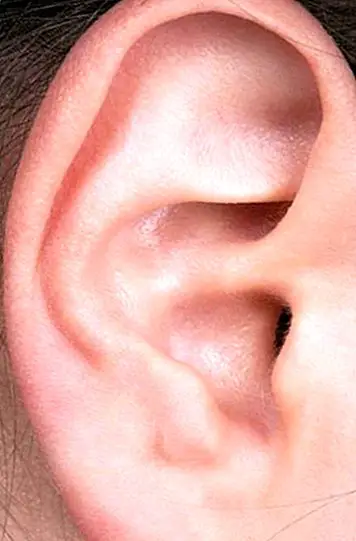Hepatitis B: what it is, causes, symptoms and treatment
Although the hepatitis CIt is considered one of the most serious liver infections, especially as it is a chronic condition without a cure that can progress to more serious stages (such as cirrhosis, liver failure and / or liver cancer), hepatitis Bit is also another severe hepatic infection.
This time, it is an infection caused by the hepatitis B virus, also known medically as HBV. Although it does not tend to be a chronic condition, for some people it can become chronic, which will eventually increase the risk of suffering other more serious and serious diseases.
What is hepatitis B?
Hepatitis B is a viral infection of the liver (that is, a liver infection caused by a virus), caused by the hepatitis B virus (HBV). Although it is an infection that has treatment and can be prevented by administering the vaccine, according to the WHO it is a "potentially fatal liver infection", especially when it tends to become chronic.
In fact, there is no cure if you already have hepatitis B, although it is true that, in most cases, people infected with this virus tend to recover completely, even when they suffer from severe or very serious symptoms.

What are the symptoms of hepatitis B
First, we must bear in mind that The first symptoms of hepatitis B tend to appear between 1 to 4 months after infection. However, cases have been observed in which signs or symptoms appear only two weeks after infection.
It is estimated that the average incubation period of this virus is approximately 75 days, although it may range from 30 to 180 days. In this sense, the hepatitis B virus can be detected between 30 to 60 days after infection, and this is able to survive at least 7 days outside the body of the infected person.
And what are those symptoms? The most common are the following:
- Abdominal pain and abdominal discomfort.
- Fever and joint pain.
- Dark colored urine.
- Loss of appetite, together with nausea and vomiting.
- Jaundice (the skin and the white part of the eye turn yellow).
- Fatigue, feeling of chronic tiredness and weakness.
How is it spread and what are its causes?
We must bear in mind that the hepatitis B virus is fundamental and mainly in the blood, although we also find it - to a lesser extent - in saliva, semen and other body fluids.
And how is the hepatitis B virus transmitted? Through direct contact with infected body fluids, either from a puncture with a needle or sexually (that is, by sexual contact with an infected person).

In addition, the virus is easily transmitted from the mother to the child during the time of delivery (which is medically known asperinatal transmission). In these cases, chronic infection is very common in infected infants before 5 years of age. It is also common the infection of an infected child to a healthy child during the first 5 years of life, if it comes in contact with infected blood.
As we see, the hepatitis B virus is not spread by contaminated food or water, as it does with the hepatitis A virus.
How is it treated?
When the infection of hepatitis B is in its acute phase, there is no specific medical treatment, although the World Health Organization advises the treatment based on oral medications such as entecavir or tenofovir, as they are the most powerful to suppress this virus.
However, in most infected people medical treatment is not able to cure the infection, but suppresses the replication of the virus. For this reason, medical treatment must be continued throughout life.
If the infection becomes chronic, it is possible to treat it with medications by means of oral antiviral agents, with the objective of slowing down the infection to become more serious, such as, for example, leading to cirrhosis or liver cancer. This article is published for informational purposes only. It can not and should not replace the consultation with a Physician. We advise you to consult your Trusted Doctor. ThemesLiver diseases Liver


